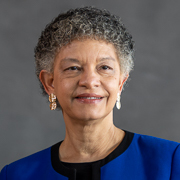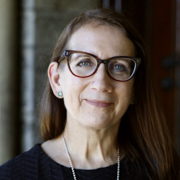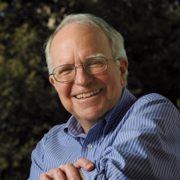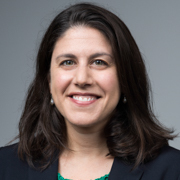Speakers 

Katharine G. Abraham
Katharine G. Abraham is a Distinguished University Professor in the Department of Economics at the University of Maryland. Her published research includes papers on the work and retirement decisions of older Americans; how government policies affect employers' choices concerning employment and hours over the business cycle; the effects of financial aid on the decision to attend college; discrepancies in alternative measures of employment, wages and hours; and the measurement of economic activity. She served as commissioner of the Bureau of Labor Statistics from 1993 through 2001 and as a member of the President's Council of Economic Advisers from 2011 through 2013. Abraham currently serves on standing academic advisory committees convened by the Congressional Budget Office, the Bureau of Economic Analysis, and the Federal Reserve Bank of Chicago. She is a research associate of the National Bureau of Economic Research, a research fellow of the Institute of Labor Economics, a member of the American Academy of Arts and Sciences, a distinguished fellow of the American Economic Association, and an elected fellow of the American Statistical Association and of the Society of Labor Economists. Abraham received her PhD in economics from Harvard University and her BS in economics from Iowa State University.

Daron Acemoglu
Daron Acemoglu is an Institute Professor at the Massachusetts Institute of Technology. Acemoglu's areas of research include political economy, economic development and growth, human capital theory, growth theory, innovation, search theory, network economics and learning. His recent research focuses on the political, economic and social causes of differences in economic development across societies; the factors affecting the institutional and political evolution of nations; and how technology impacts growth and the distribution of resources and is itself determined by economic and social incentives. In addition to scholarly articles, Acemoglu has published five books: Economic Origins of Dictatorship and Democracy (with coauthor James A. Robinson), which was awarded the Woodrow Wilson and the William Riker prizes; Introduction to Modern Economic Growth; Why Nations Fail: The Origins of Power, Prosperity, and Poverty (with coauthor James A. Robinson), which was a New York Times bestseller in 2012; Principles of Economics (with coauthors David Laibson and John List); and The Narrow Corridor: States, Societies and the Fate of Liberty (also with coauthor James A. Robinson). Acemoglu is an elected fellow of the National Academy of Sciences (United States), the Science Academy (Turkey), the American Academy of Arts and Sciences, the Econometric Society, the European Economic Association, and the Society of Labor Economists. He has received numerous awards and fellowships including the inaugural T. W. Shultz Prize from the University of Chicago in 2004, the inaugural Sherwin Rosen Award for outstanding contribution to labor economics in 2004, the Distinguished Science Award from the Turkish Sciences Association in 2006, the John von Neumann Award from Rajk College in Budapest in 2007, the 2016 BBVA Frontiers of Knowledge Award, the Carnegie Fellowship in 2017, the Jean-Jacques Laffont Prize in 2018, the Global Economy Prize in 2019, and the CME Mathematical and Statistical Research Institute Prize in 2021. In 2005, Acemoglu received the John Bates Clark Medal, which is awarded every two years to the best economist in the United States under the age of 40 by the American Economic Association. He also received the Erwin Plein Nemmers prize, which is awarded every two years for work of lasting significance in economics. He holds honorary doctorates from the University of Utrecht, Bosporus University, and the University of Athens. Acemoglu received a BA in economics from the University of York, an MSc in mathematical economics and econometrics from the London School of Economics, and a PhD in economics from the London School of Economics.

Catalina Amuedo-Dorantes
Catalina Amuedo-Dorantes is a professor of economics at the University of California, Merced, and a research fellow at the Centre for Research and Analysis of Migration, the Fundacion de Estudios de Economia Aplicada, the Global Labor Organization, and the Institute of Labor Economics (IZA). She also serves as a member of the Advisory Council of the Americas Center at the Federal Reserve Bank of Atlanta, as an executive committee member of University of California Merced Community and Labor Center, as a member of the Advisory Board of the Berkeley Interdisciplinary Migration Institute, and as a policy expert for the UCLA Latino Policy & Politics Institute. Amuedo-Dorantes' areas of interest include labor economics, international migration, immigration policy and remittances. She has published on contingent work contracts, the informal work sector, international remittances, immigrant assimilation, and the impact of immigration policies on migrants and the communities where they reside. She was the 2020 American Society of Hispanic Economists (ASHE) Outstanding Achievement Award recipient, department chair at San Diego State University from 2015 to 2018, president of ASHE in 2014, western representative of the Committee on the Status of Women in the Economics Profession from 2016 through 2021, and the 2013–2014 Border Fulbright García-Robles Scholar. She has held visiting positions at the Upjohn Institute for Employment Research, the Center for Human Resource at the Ohio State University, the Institute for Research on Poverty at the University of Wisconsin Madison, and the Public Policy Institute of California. Amuedo-Dorantes has an MA and PhD in applied economics from Western Michigan University and a JD from the Universidad Nacional de Educación a Distancia in Madrid.

Peter Cappelli
Peter Cappelli is the George W. Taylor Professor of Management at the Wharton School of the University of Pennsylvania and director of Wharton's Center for Human Resources. He is also a research associate at the National Bureau of Economic Research, served as senior advisor to the Kingdom of Bahrain for employment policy from 2003 through 2005, and since 2007 has been a distinguished scholar of the Ministry of Manpower for Singapore. Cappelli has been a guest scholar at the Brookings Institution, a German Marshall Fund fellow, and a faculty member at the Massachusetts Institute of Technology, the University of Illinois, and the University of California, Berkeley. He was a staff member on the U.S. Secretary of Labor's Commission on Workforce Quality and Labor Market Efficiency from 1988 through 1990, co-director of the U.S. Department of Education's National Center on the Educational Quality of the Workforce, and a member of the Executive Committee of the U.S. Department of Education's National Center on Post-Secondary Improvement at Stanford University. Cappelli has served on three committees of the National Academy of Sciences and three panels of the National Goals for Education. He was recently named by HR Magazine as one of the top five most influential thinkers in management and was elected a fellow of the National Academy of Human Resources. He received the 2009 PRO award from the International Association of Corporate and Professional Recruiters for contributions to human resources. Cappelli serves on the Global Agenda Council on Employment for the World Economic Forum and several advisory boards. He is a regular contributor to The Wall Street Journal and writes a monthly column for HR Executive magazine. His recent work on performance management, agile systems, and hiring practices, and other workplace topics appears in the Harvard Business Review.Cappelli has a bachelor of science degree in industrial relations from Cornell University and a PhD in labor economics from Oxford University, where he was a Fulbright Scholar. He recently received an honorary doctorate from Liege University in Belgium.

Courtney C. Coile
Courtney C. Coile is the William R. Kenan, Jr. professor of economics at Wellesley College. She recently served as the inaugural director of the Knapp Social Science Center, which supports student and faculty research in the social sciences and promotes the exploration of issues such as health and development from an interdisciplinary perspective. Coile's scholarly work focuses on the economics of aging and health, particularly retirement and disability policy. She is the co-director of the National Bureau of Economic Research's Retirement and Disability Research Center, and as co-director of the NBER's International Social Security project, she works with researchers in a dozen countries to explore why workers in the United States and elsewhere are retiring later and how much of this trend can be explained by social security reforms. Another current project investigates the effects of disability benefits for U.S. veterans. In past work, Coile has examined how recessions and stock market fluctuations affect retirement and retirees' well-being and whether older individuals are healthy enough to work longer. She is the coauthor of Reconsidering Retirement: How Losses and Layoffs Affect Older Workers. Her work also is published in the Social Security and Retirement Programs around the World series as well as academic journals. Coile is an editor of The Journal of Pension Economics and Finance and a member of the Committee on Population at the National Academies of Sciences, Engineering, and Medicine. She earned her PhD in economics from the Massachusetts Institute of Technology and her AB in economics from Harvard University.

Susan M. Collins is president and chief executive officer of the Federal Reserve Bank of Boston. She took office in July 2022 and currently serves as a voting member of the Federal Open Market Committee. Collins oversees all of the Boston Fed's activities, including economic research and analysis, banking supervision and financial stability efforts, community economic development activities, and a wide range of payments, technology, and finance initiatives. Before joining the Boston Fed, Collins was at the University of Michigan, where she was the provost and executive vice president for academic affairs, the Edward M. Gramlich Collegiate Professor of Public Policy, and a professor of economics. She arrived at Michigan in 2007, first serving for a decade as the Joan and Sanford Weill Dean of the university's Gerald R. Ford School of Public Policy. Collins began her career as an assistant and then associate professor at Harvard University before moving to Washington, D.C., in 1992. There, she was a professor of economics at Georgetown University and a senior fellow in economic studies at the Brookings Institution. She also has served as a senior staff economist for the President's Council of Economic Advisers and a visiting scholar for the International Monetary Fund. Collins' published research focuses on the determinants of economic growth, exchange rate regimes and the implications for economic performance, the implications of global integration for U.S. labor markets, persistent macroeconomic imbalances, and countries' economic transformations. Collins served for nine years on the Board of Directors of the Federal Reserve Bank of Chicago (six at the head office and three in Detroit). She has been a member of the boards of the National Bureau of Economic Research and the Peterson Institute for International Economics and a nonresident senior fellow at the Brookings Institution. She was also a member of the Council on Foreign Relations and the Aspen Economic Strategy Group. Collins has served as an elected member of the American Economic Association's executive committee. She also has chaired the AEA's Committee on the Status of Minority Groups in the Economics Profession and been president of the Association of Professional Schools of International Affairs. Collins earned a PhD in economics from the Massachusetts Institute of Technology after graduating from Harvard University summa cum laude with an undergraduate degree in economics.

Daniel H. Cooper
Daniel H. Cooper is a vice president and economist in the Federal Reserve Bank of Boston Research Department, where he heads the Household Decision-making group. Cooper regularly contributes macroeconomic analysis to aid in the monetary policy deliberations of the Bank's president. His main research interests involve household behavior, although he also focuses on topics related to monetary policy and the labor market. Cooper's recent work has centered on the effect of credit access on consumption, the effect of fluctuations in bank lending on consumption, the effect of monetary policy on house price appreciation, and the effect of minimum wage changes on inflation and consumer spending. He is currently working on projects involving the impact of monetary policy shocks on consumption, how economic conditions impact retirement decisions, and the impact of the pandemic-related stimulus payments on expenditures. Cooper has a bachelor of arts in economics from Amherst College and a master's and PhD in economics from the University of Michigan.

Patricia Cortes
Patricia Cortes is an associate professor of markets, public policy, and law at Boston University Questrom School of Business and associate director of the Human Capital Initiative at the BU Global Development Policy Center. She is an empirical labor economist working on international migration and gender. Her current research focuses on understanding the sources of the gender pay gap, particularly for the highly educated. Her work has been published in leading economic journals, used in testimony before Congress, and highlighted by, among other outlets, the New York Times, the Washington Post, The Economist, and the Wall Street Journal. Prior to joining BU, Cortes was an assistant professor at the University of Chicago Booth School of Business. Cortes obtained her PhD in economics from MIT and her master's and bachelor's degrees in economics from La Universidad de los Andes in Bogota, Colombia.

Steven J. Davis
Steven J. Davis is the William H. Abbott Distinguished Service Professor of International Business and Economics at the University of Chicago Booth School of Business and Senior Fellow at the Hoover Institution. He studies business dynamics, hiring practices, job loss, the effects of economic uncertainty and other topics. His research appears in the American Economic Review, Journal of Political Economy, Quarterly Journal of Economics and other leading scholarly journals. He is a research associate of the National Bureau of Economic Research, a senior academic fellow with the Asian Bureau of Finance and Economic Research, an advisor to the U.S. Congressional Budget Office, a visiting scholar at the Federal Reserve Bank of Atlanta, a senior adviser to the Brookings Papers on Economic Activity, and past editor of the American Economic Journal: Macroeconomics. Davis is also an elected fellow of the Society of Labor Economists. He has a PhD and an MA in economics from Brown University and a BA in economics from Portland State University.

Ryan A. Decker
Ryan A. Decker is a principal economist at the Federal Reserve Board of Governors, where he rotates between coordinating the staff GDP forecast, forecasting the industrial sector, and fulfilling various other responsibilities. Decker’s academic research focuses on entrepreneurship, firm dynamics, and labor markets in both official and nontraditional data. He is also a member of the Conference on Research in Income and Wealth. Previously, Decker was an economist with the U.S. Census Bureau’s Center for Economic Studies and an adjunct professor at the University of Maryland. His research has been (or will be) published in the Brookings Papers on Economic Activity, the Journal of Human Resources, the American Economic Journal: Macroeconomics, the Journal of Economic Perspectives, and the American Economic Review, among other journals. He received his bachelor’s degree from Brigham Young University and his PhD and MA from the University of Maryland.

Katharine M. Donato
Katharine M. Donato is the Donald G. Herzberg Professor of International Migration and director of the Institute for the Study of International Migration in the School of Foreign Service at Georgetown University. She has examined many research questions related to migration, including the economic consequences of U.S. immigration policy; health consequences of migration; immigrant parent involvement in schools in New York, Chicago, and Nashville; deportation and its effects for immigrants; the great recession and its consequences for Mexican workers; the U.S. legal visa system; and refugee and migrant integration. She is the coauthor of Gender and International Migration: From Slavery to Present (with Donna Gabaccia) and Refugees, Migration and Global Governance: Negotiating the Global Compacts (with Elizabeth Ferris). Donato has co-edited eight refereed journal issues and published more than 90 refereed journal articles and book chapters. Currently, she is the principal investigator on a Russell Sage Foundation–funded project that examines the assimilation and mobility transitions of immigrant adults who entered the United States as unaccompanied minors. She is also a co-principal investigator on a National Science Foundation–funded project that examines how environmental stressors affect out-migration and the health of families in southwestern Bangladesh. Donato was a visiting scholar at the Russell Sage Foundation during the 2017–2018 academic year. Prior to joining the Georgetown faculty, she was on the faculties of Vanderbilt University and Rice University. Donato earned a PhD in sociology from the State University of New York at Stony Brook, an MA from the University of Wisconsin, and a BS from New York Institute of Technology.

Christopher L. Foote
Christopher L. Foote is a senior economist and policy advisor in the Federal Reserve Bank of Boston Research Department. His research and policy interests include housing and the macroeconomics of the labor market. Foote joined the Boston Fed in 2003 after serving as chief economist for the Council of Economic Advisers. Also in 2003, he served as an economic advisor to the Coalition Provisional Authority in Baghdad. He returned briefly to Iraq in 2004. Foote graduated from the College of William and Mary in 1987 and then worked for two years as a newspaper reporter in Harrisonburg, Virginia. He earned a PhD in economics from the University of Michigan in 1996. From 1996 to 2002, Foote taught in the economics department at Harvard University. Each spring, he teaches intermediate macroeconomics at Harvard, where he was named a professor of the practice of economics in 2012.

Alfonso Flores-Lagunes
Alfonso Flores-Lagunes is a professor of economics at Syracuse University and a senior research associate at the Center for Policy Research. He has been a research fellow at the Institute of Labor Economics (IZA) since 2008 and at the Global Labor Organization since 2017. Flores-Lagunes has held faculty appointments at the State University of New York, Binghamton; the University of Florida; and the University of Arizona. He is an associate editor of the Journal of Business and Economic Statistics and the Latin American Economic Review, and he serves on the editorial board of EnsayosRevista de Economía. Flores-Lagunes' main research interests involve methods for the estimation of casual effects that are relevant to the policies and methodologies for analyzing data distributed over space, such as those data arising from interrelated choices by geographical jurisdictions. His academic work has been published in The Review of Economics and Statistics, The Economic Journal, Journal of Human Resources, Journal of Business and Economic Statistics, Journal of Applied Econometrics, and Review of Financial Studies. Flores-Lagunes received a PhD and an MA in economics from the Ohio State University and a BA in economics from the Monterrey Institute of Technology in Monterrey, Mexico.

Robert E. Hall
Robert E. Hall is the Robert and Carole McNeil Joint Hoover Institution Senior Fellow and Professor of Economics at Stanford University. He is an applied economist with interests in employment, technology, competition, and economic policy in the aggregate economy and in particular markets. Hall served as president of the American Economic Association (AEA) in 2010. He presented the Distinguished Lecture to the association in 2001 and served as vice president in 2005. He is a member of the National Academy of Sciences, a distinguished fellow of the AEA, and a fellow of the American Academy of Arts and Sciences, the Econometric Society, and the Society of Labor Economists. Hall served as director of the research program on economic fluctuations and growth at the National Bureau of Economic Research from 1977 through 2013. He continues to serve as chairman of the bureau's Committee on Business Cycle Dating, which maintains the semiofficial chronology of the U.S. business cycle. Hall has advised several government agencies on national economic policy, including the Justice Department, the Treasury Department, the Federal Reserve Board, and the Congressional Budget Office, where he serves on the Advisory Committee. He served on the National Presidential Advisory Committee on Productivity and has testified on numerous occasions before congressional committees concerning national economic policy. Before coming to Stanford's Hoover Institution and the Department of Economics in 1978, Hall taught at the Massachusetts Institute of Technology and at the University of California, Berkeley. He received his BA from the University of California, Berkeley, and his PhD from MIT.

John C. Haltiwanger
John C. Haltiwanger is the Dudley and Louisa Dillard Professor of Economics at the University of Maryland. He is a research associate of the National Bureau of Economic Research, a senior research fellow at the Center for Economic Studies at the U.S. Census Bureau, and a fellow of the Society of Labor Economics and the Econometric Society. In the late 1990s, he served as chief economist of the U.S. Census Bureau. He has played a major role in developing and studying U.S. longitudinal firm-level data. Using these data, he has developed new statistical measures and analyzed the determinants of firm-level job creation, job destruction and economic performance. He has explored the implications of these firm dynamics for aggregate U.S. productivity growth and for the U.S. labor market. The statistical and measurement methods Haltiwanger helped develop to measure and study firm dynamics have been increasingly used by many statistical agencies around the world. His own research increasingly uses the data and measures on firm dynamics from a substantial number of advanced, emerging and transition economies. His work with the statistical agencies received the Julius Shiskin Award for economic statistics in 2013, the Roger Herriott Award for innovation in federal statistics in 2014, and the Global Entrepreneurship Research Award in 2020. He has published more than 100 academic articles and numerous books including Job Creation and Destruction (with Steven J. Davis and Scott Schuh). Haltiwanger received his PhD in economics from the Johns Hopkins University and his BS in applied mathematics and economics from Brown University.

Bart Hobijn
Bart Hobijn is a senior economist and economic advisor at the Federal Reserve Bank of Chicago. Before joining the Chicago Fed in 2022, he was a professor at Arizona State University and a research economist at the Federal Reserve Banks of New York and San Francisco. Hobijn serves as a member of the Bureau of Labor Statistics' Technical Advisory Committee. His current research focuses on the duality of the U.S. labor market and on seasonal fluctuations in employment. In addition, he has investigated the sources of global productivity growth, how workers make long-term career decisions in the face of technological change, why people and businesses in poor countries do not adopt more modern technologies, how firms' price-setting decisions drive inflation, and how the Great Recession affected the U.S. labor market. Hobijn received his PhD in economics from New York University and his MSc in econometrics from Erasmus University Rotterdam.

Damon Jones
Damon Jones is an associate professor at the University of Chicago Harris School of Public Policy. His research topics include inequality, household finance, income tax policy, social security, retirement, worker benefits, and labor markets. Jones was a post-doctoral fellow at the Stanford Institute for Economic Policy Research and is a faculty research fellow at the National Bureau of Economic Research. He has previously served as a senior economist in the White House Council of Economic Advisers. Jones received his PhD in economics from the University of California, Berkeley, and holds a BA in public policy with a minor in African and African American studies from Stanford University. He is also the chair of the board for the W.E.B. Du Bois Scholars Institute.

Lisa B. Kahn
Lisa B. Kahn is a professor of economics at the University of Rochester. Her research focuses on labor economics, particularly on organizations and education. Her most recent work uses data on job vacancy postings to examine whether the Great Recession accelerated technological change, exacerbating polarization of the U.S. economy. She also has developed a methodology for measuring the contributions of employer learning and productivity evolution in determining life-cycle earnings. In previous work, she examined the consequences of graduating from college in an economic downturn, finding surprisingly long-lasting, negative wage effects. That paper won the award for the best paper published in Labour Economics in 2010–11. Kahn previously was an associate professor of economics at the Yale School of Management. From 2010 to 2011, she served on President Obama's Council of Economic Advisers as the senior economist for labor and education policy. She also has been a visiting fellow at the Brookings Institution and is currently a research associate at the National Bureau of Economic Research, an Institute of Labor Economics research fellow, and a member of the executive board for the Society of Labor Economists. Kahn holds an AB in economics from the University of Chicago and an MA and a PhD in economics from Harvard University.

Matthew E. Kahn
Matthew E. Kahn is the Provost Professor of Economics and Spatial Sciences at the University of Southern California. He is also a research associate at the National Bureau of Economic Research and a research fellow at the Institute of Labor Economics. He has taught at Columbia University; the Fletcher School of Law and Diplomacy at Tufts University; the University of California, Los Angeles; and the Johns Hopkins University. He has served as a visiting professor at Harvard University, Stanford University and the National University of Singapore. Kahn's research focuses on urban and environmental economics. He is the author of Green Cities: Urban Growth and the Environment and the coauthor (with Dora L. Costa) of Heroes and Cowards: The Social Face of War. He is also the author of Climatopolis and the coauthor (with Siqi Zheng) of Blue Skies over Beijing: Economic Growth and the Environment in China. In addition, Kahn has published three Amazon Kindle books on urban economics and microeconomics. In 2021, Yale University Press published his book Adapting to Climate Change, and Johns Hopkins Press published Unlocking the Potential of Post-Industrial Cities, which he coauthored with Mac McComas. In April, the University of California Press published his book Going Remote. Kahn is a graduate of Hamilton College and the London School of Economics. He holds a PhD in economics from the University of Chicago.

Giovanni Peri
Giovanni Peri is professor of economics at the University of California, Davis, and a research associate of the National Bureau of Economic Research. He is editor of the Journal of the European Economic Association and is on the editorial board of several other academic journals on economics. Peri is the founder and director of the UC Davis Global Migration Center, an interdisciplinary research group focusing on international migrations. His research focuses on the impact of international migrations on the labor markets and productivity of the receiving countries. It also focuses on the determinants of international migrations. He has published in several academic journals including the American Economic Review, the Review of Economic Studies, The Review of Economics and Statistics, the Economic Journal, the Journal of the European Economic Association, the Journal of International Economics, and the Journal of Labor Economics. Peri has received grants for the study of international migrations from several foundations and international organizations, including the National Science Foundation, the Russell Sage Foundation, the John D. and Catherine T. MacArthur Foundation, the World Bank, and the Volkswagen Foundation. He has a PhD in economics from the University of California, Berkeley; a doctoral degree in economics from Bocconi University in Milan, Italy; and a laurea in economics and social sciences from Bocconi University.

Ayşegül Şahin
Ayşegül Şahin is the Richard J. Gonzalez Regents Chair in Economics at the University of Texas at Austin and an adviser to the Federal Reserve Bank of Dallas. Prior to joining UT Austin's economics department, Şahin was a research economist at the Federal Reserve Bank of New York for 14 years. At the New York Fed, she primarily focused on the analysis of the U.S. labor market. Şahin's research focuses on the analysis of macro-labor issues such as unemployment and labor force participation dynamics, labor market mismatch, gender disparities in labor market outcomes, and entrepreneurship. Her papers have appeared in various academic journals including the American Economic Review, the Review of Economic Studies, the Review of Financial Studies, the Journal of Monetary Economics, and the Brookings Papers on Economic Activity. Şahin received her bachelor's and MS degrees in electrical engineering from Bilkent University in Ankara, Turkey, and her MA and PhD in economics from the University of Rochester.

Scott Stern
Scott Stern is the David Sarnoff Professor of Management at the Massachusetts Institute of Technology Sloan School of Management. Stern explores how innovation and entrepreneurship differ from more traditional economic activities, and the consequences of these differences for strategy and policy. His research in the economics of innovation and entrepreneurship focuses on entrepreneurial strategy, innovation-driven entrepreneurial ecosystems, and innovation policy and management. Stern's recent studies include the impact of clusters on entrepreneurship, the role of institutions in shaping the accumulation of scientific and technical knowledge, and the drivers and consequences of entrepreneurial strategy. He has worked widely with practitioners in bridging the gap between academic research and the practice of innovation and entrepreneurship. This includes advising start-ups and other growth firms in the area of entrepreneurial strategy, as well as working with governments and other stakeholders on policy issues related to competitiveness and regional performance. In recent years, Stern has developed a popular new MIT Sloan elective, Entrepreneurial Strategy; cofounded the MIT Regional Entrepreneurship Acceleration Program; advised the development of the Social Progress Index; and served as the lead MIT investigator on the US Cluster Mapping Project. Stern started his career at MIT, where he taught from 1995 to 2001. Before returning to MIT in 2009, he held positions as a professor at the Kellogg School of Management at Northwestern University and as a non-resident senior fellow at the Brookings Institution. Stern is the director and cofounder of the Innovation Policy Working Group at the National Bureau of Economic Research. In 2005, he was awarded the Kauffman Prize Medal for Distinguished Research in Entrepreneurship. Stern holds a BA in economics from New York University and a PhD in economics from Stanford University.

Lawrence H. Summers
Lawrence H. Summers is the Charles W. Eliot University Professor and President Emeritus of Harvard University. During the past three decades he has served in a series of senior policy positions, including vice president of development economics and chief economist of the World Bank, director of the National Economic Council for the Obama Administration from 2009 to 2011, and Secretary of the Treasury of the United States from 1999 to 2001. In 1983, Summers became one of the youngest individuals in recent history to be named as a tenured member of the Harvard University faculty. In 1987, he became the first social scientist ever to receive the annual Alan T. Waterman Award of the National Science Foundation. And in 1993, he was awarded the John Bates Clark Medal, given every two years to the outstanding American economist under the age of 40. Summers received a bachelor of science degree from the Massachusetts Institute of Technology and was awarded a PhD from Harvard.

Till Marco von Wachter
Till Marco von Wachter is a professor of economics at the University of California, Los Angeles; the faculty director of the California Policy Lab at UCLA; and the associate dean for research in UCLA's Social Sciences Division. He is also the director of the California Census Research Data Center and an adjunct research affiliate with the RAND Corporation. Von Wachter's research examines how labor market conditions and institutions affect the well-being of workers and their families. This includes analyses of the effects of unemployment and job loss on workers' long-term earnings and health outcomes and of the roles that unemployment insurance and disability insurance play in buffering such shocks. His current projects focus on job and earnings mobility of young workers over their careers, the effects of minimum wages, and homelessness. His work has been published in the American Economic Review and the Quarterly Journal of Economics, among others. Von Wachter has been an expert witness in numerous hearings before committees of the U.S. Congress, and he has provided expert assistance to the city and county of Los Angeles, the U.S. Department of Labor, the United Nations and the International Monetary Fund. He has a PhD in economics from the University of California, Berkeley, and an MA in economics from the University of Bonn in Germany.